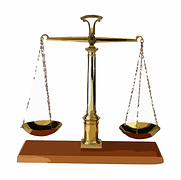If I Am Arrested On A Maryland Charge, What Rights Do I Have?

Anyone arrested or charged with the crime in Maryland enjoys certain constitutional and statutory substantive rights. In some respects, any accused individual enjoys the same constitutional rights as all citizens, but it is in the when that citizen faces a criminal prosecution that those rights become operative, come to the forefront, and are employed defensively, for the protection of the accused.
“The right of the people to be secure in their persons, houses, papers, and effects, against unreasonable searches and seizures, shall not be violated”
-U.S. Constitution, 4th Amendment
Any person, regardless of whether or not they are arrested, enjoys a 4th Amendment right to be free from unreasonable searches and seizures. Attorney Eric T. Kirk says they have a right to be secure in their papers, belongings and property. Under this provision, all citizens enjoy a right to privacy in their home, and other areas that they can reasonably expect to be secure and private.
“No person shall… be compelled in any criminal case to be a witness against himself”
-U.S. Constitution, 5th Amendment

An individual arrested in charged with the Maryland crime has a 5th Amendment protection against compelled self-incrimination. Any individual obviously has no responsibility or compulsion to talk to the police, or other government officials, or in any way cooperate with their investigation. In this context, courts routinely hold the obvious: that an individual cannot be tortured, or otherwise unfairly coerced into giving a making. The courts have also interpreted this provision to require that police give certain warnings to an individual before questioning- made famous by the Miranda decision. This provision also presents accused individual with a choice if they go to trial. The State could not call the defendant as a witness, but that accused person may testify if they wish. If they choose not to testify, the jury is specifically instructed that they may not consider or assume guilt because of the silence.
“In all criminal prosecutions, the accused shall enjoy the right … to be confronted with the witnesses against him…and to have the Assistance of Counsel for his defence.”
-U.S. Constitution, 6th Amendment
Under the 6th Amendment, an individual has the right to a lawyer during all “critical phases” of a criminal prosecution. An individual in custody has have a right to have a lawyer present any time they speak to the police, should they choose to speak to authorities. Under the 6th Amendment and individual likewise has a right to confront and cross-examine those making accusations against them.
Some of these protections guaranteed by the Bill of Rights are considered trial rights meaning they play a role only if a defendant is ultimately placed on trial. Others attach or become important at far earlier stages of the proceedings, or, indeed, apply whether or not an individual is ever charged. Moreover, this is not an exhaustive list of rights guaranteed to those facing criminal charges.
For more, visit:
Is there a Right to Bail in Maryland?
What Does A Judge Consider In Setting A Maryland Bail?
How Do You Get Bail In A Maryland Criminal Case?



